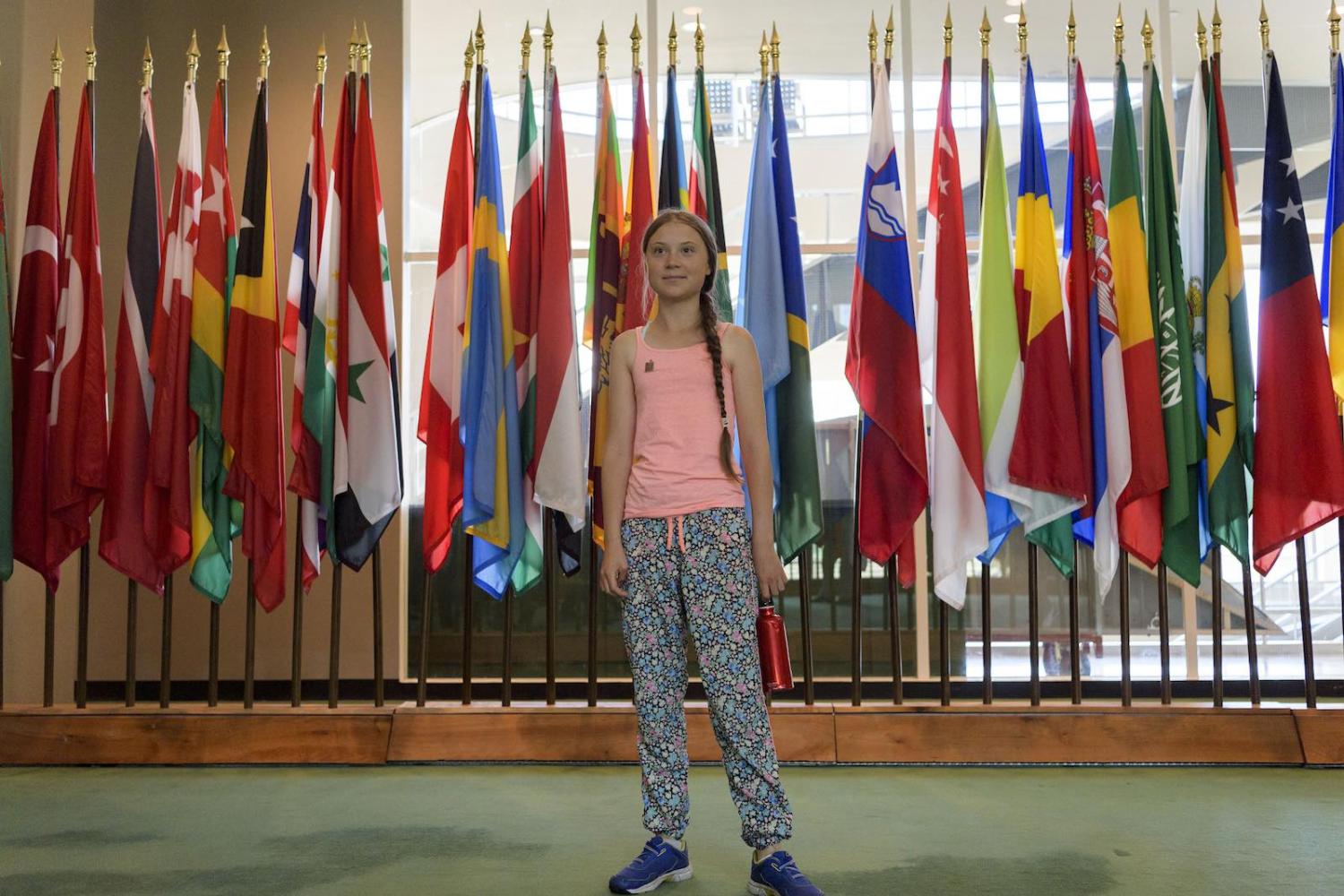- Media forecasts ahead of natural disasters are often misunderstood. The New York Times has a great visual piece about trying to communicate statistical uncertainty about hurricane paths.
- Linda Calabrese offers a very interesting view on China and development issues, from domestic inequality to debt sustainability in the developing world – a must-read for development workers. Similarly, Marina Rudyak analyses the ins and outs of China’s new International Development Agency.
- Greta Thunberg, the 16-year-old Swedish environmentalist, arrived in New York, where she was welcomed by a flotilla of 17 boats, representing the 17 Sustainable Development Goals of the United Nations.
- Is it possible that the methods that saw US crime rates decrease can do the same in El Salvador? Stephen Dudley looks at how to apply “focused deterrence” in the Central American country.
- A touching piece by Timorese Jake Lasi, remembering his childhood in Timor Leste on the verge of independence, and the tumultuous years that followed.
- According to the World Health Organization, in 80 selected countries, 30% of women have been victims of physical or sexual violence by their intimate partner at least once during their lifetime. A group of social scientists looks at how direct cash transfer programs could reduce this kind of violence.
- Esther Duflo shares the impact of an experiment in India where villages must elect women leaders. She underlines that this exposure to women in power has resulted in higher graduation rates for girls, reduced parents’ aspiration gap between boys and girls, and increased teenagers’ own ambitions for their lives and careers.
- The Paris Agreement cemented a shift towards universal participation in the global effort to mitigate climate change. The participation of some countries in fighting climate change, however, is conditioned upon the support they receive (be it financial or in-kind). Jonathan Pickering, Pieter Pauw, Shikha Bhasin, and Paula Castro evaluate how this conditionality affects the agreement.
- Alexander Zaitchik has a piece on the fires in the Amazon, retracing the love/hate relationship Brazilians have with their rainforest. Earlier this week, the President Jair Bolsonaro authorised the use of the military to help battle the fires, and US President Donald Trump offered help, while French President Emmanuel Macron threatened to impose sanctions on Brazil for its lack of trustworthiness.
- It’s been two years since Myanmar’s military started its campaign of violence against the Rohingya. Today, the majority of Rohingyas are living in camps in Cox’s Bazar, Bangladesh. Now the host community is facing increased climate vulnerability, falling local wages, and increased competition for limited public resources, causing growing social tension.
- In the past 50 years, over $1 trillion in development-related aid has been transferred from rich countries to Africa, yet poverty remains high in Africa. Facing this reality, Rainer Zitelmann has an interesting argument against aid, explaining that in Asia, it was commerce and entrepreneurial capitalism, not aid money, that lifted countries out of poverty.
Aid links: Greta in New York, Rohingya crisis two years on, more
Links and stories from the aid and development sector.

Greta Thunberg, climate activist from Sweden, poses outside of the General Assembly Hall at UN headquarters in New York (Photo: Manuel Elias/United Nations)
Published 4 Sep 2019
Follow @AlexandreDayant